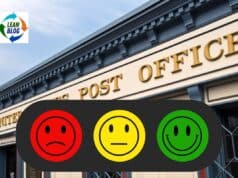Here are two contrasting stories from my past week. The stories made me think of muda (waste) and kaizen, or at least the promise of kaizen.
Waste in Customer Service:
Last week, I wrote about the need to take my GM product in for yet another safety recall. Every time I go into the dealer, for routine service or recalls, I get a cheery sounding phone call about three days later. On the surface, they are calling to make sure everything was fine with my trip to the dealer, which might make some customers feel good. But really they are pumping you to put high marks on the survey that will come in the mail from GM.
Now, I look at this and think, “This is total Non Value Added activity.” They're trying to distort the survey results and spending money in a way that I, as a customer, don't define as value. This follow up phone call does nothing to fix my car or to improve their customer service process. If I had a complaint or problem, they would have already heard from me.
Rather than spending money on courtesy calls, I'd rather have the dealer spending money on training technicians or improving the waiting area (which granted, it's already pretty nice, with its plasma TV and free beverages). Spending money on providing value and a good product rather than spending it on marketing (behaviors designed to convince you they are good)… that's what Seth Godin would call “Purple Cow” behavior.
Kaizen, or the Promise of Kaizen:
By comparison, I did have a customer service issue where I had to contact Northwest Airlines (no, they don't call after every flight to make sure everything was OK). After emailing them, I got a response back, pretty much a form letter, but this part jumped out at me:
Many customers, like you, share their observations and suggestions with us. These unsolicited remarks form the basis for many improvements in our service. Be assured that your comments will be forwarded to the responsible individuals within Northwest. Mr. Graban, as our loyal WorldPerk customer, you are in the best position to point out areas that need attention.
Now, on the surface, this sounds like kaizen in action. The problem wasn't truly “fixed” by them writing me an email and lobbing some frequent flyer miles in my direction to placate me.
The better response is to take the feedback I gave (about something systemic, not just a one-time problem) and to use that information to improve the system. This is type of thing that Jim Womack wrote about in Lean Solutions, the story of Fujitsu using lean methods to turn customer complaints into root cause problem solving and improvement opportunities.
I'm a little cynical, so I doubt that Northwest management is really using this as an opportunity for improvement, but at least they're saying the right thing. I'll bet the system issue on their website is still a problem six months from now.
But think about complaints you get…. are you using that feedback to truly improve things and to prevent errors for your customers?
Please scroll down (or click) to post a comment. Connect with me on LinkedIn.
Let’s build a culture of continuous improvement and psychological safety—together. If you're a leader aiming for lasting change (not just more projects), I help organizations:
- Engage people at all levels in sustainable improvement
- Shift from fear of mistakes to learning from them
- Apply Lean thinking in practical, people-centered ways
Interested in coaching or a keynote talk? Let’s talk.
Join me for a Lean Healthcare Accelerator Trip to Japan! Learn More









